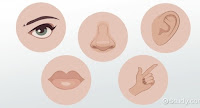COURTSHIP: THE MARRIAGE “COURT”
 |
Make a good case in your courtship |
As
we socialize, associate or mingle with many people of the opposite sex through
dating, there comes a time when we are drawn to one particular person with much
interest in them. As the interest becomes stronger, we become so serious about
each other and we begin to think of the chances of building a long term
relationship and a future together. This feeling and interest is naturally mutual
even though we might not communicate it verbally to ourselves.
Courtship
is about developing an intimate friendship with the opposite sex with the
mutual view of possible marriage.
Contrast
to dating where the partners may
have no commitment to consider marriage but for other reasons especially to
have fun and enjoy
romantic associations, people court only when they are ready to make a
commitment to marriage. There is no "shopping" around once you start
courting.
Courtship is the “Court” of Marriage
Courtship
is the "court" of marriage, which provides the opportunity and
platform for partners to Test, Examine, and Evaluate (“TEE”) their inner character,
values, beliefs, background, interests and life purposes.
Through
the long walks in the sunshine, the long talks and constant communications, the
quality time spent together and the many other activities done together, the
partners get to know each other in great depth, enjoying each other's company
as true friends.
Courtship
enables the partners to dig deep to explore and find out more about each other,
developing unconditional love, trust and transparency, and to decide if they
really want to spend the rest of their lives together.
Under
the guidance of parents or mentors, the partners concentrate on developing a
deep friendship that could lead to marriage.
When Courtship Ceases
If
during the courtship one or both parties realize that marriage is not possible
and they end the relationship, it doesn’t mean the courtship has failed. This
is because you court to see if there is any reason why you should or shouldn't
get married – possibility of marriage.
Partners
in courtship should just understand that not all courtships will end up in
marriage.
The
Bible admonishes that we should let our love be sincere, being kindly
affectionate to one another with brotherly love; in honour giving preference to
one another.
In
other words, sometimes, to show that you love someone means letting the person
go if you realize that the relationship cannot work. It means giving preference
to them and thinking about their interest first.
Although
the ending of a courtship most likely will be painful, hurting and
heartbreaking which can lead to bitterness, it can be avoided. The parties, as
well as their parents, mentors and loved ones, can help them to deal with any
disappointment or unfulfilled hopes.
Be Cautious about Courtship
Inasmuch
as courtship could be a very good opportunity for couples to study each other
in detail, it also poses a whole lot of challenges for young people.
Many
people at this period get so much involved emotionally that they indulge in
promiscuous activities that they never had thought of or had “vowed” never to
be involved in.
Another
issue is that, at this period, they hardly notice the weaknesses and flaws of
each other because the interest in each other is very high and so they overlook
so many glaring red flags. People usually hide their faults and flaws to give a
false impression of themselves, doing what they are not used to in order to
keep their partner liking them.
Courtship
however, should be a time to cultivate
transparency in your relationship. It is a time to take away the face mask, and openly
and honestly explore each other’s lives leading up to marriage!
Make a Good Case in Your Courtship
Remember,
courtship is the "court" of marriage, and so don’t enter into it
unprepared. You need time to know the best and worst of each other, and to
discern if each party is ready for marriage and to play his or her role as a
husband or wife.
Ask
all the necessary questions; make all the requisite fact-findings; and gather
all the important evidences you need in order to make a good case and to arrive at a
good decision of marriage.
REFERENCES
- A Guide to Successful Marriage by Cecilia Arthur (Mrs.)
- Your Guide to Marriage by Dr. John Boakye



Comments